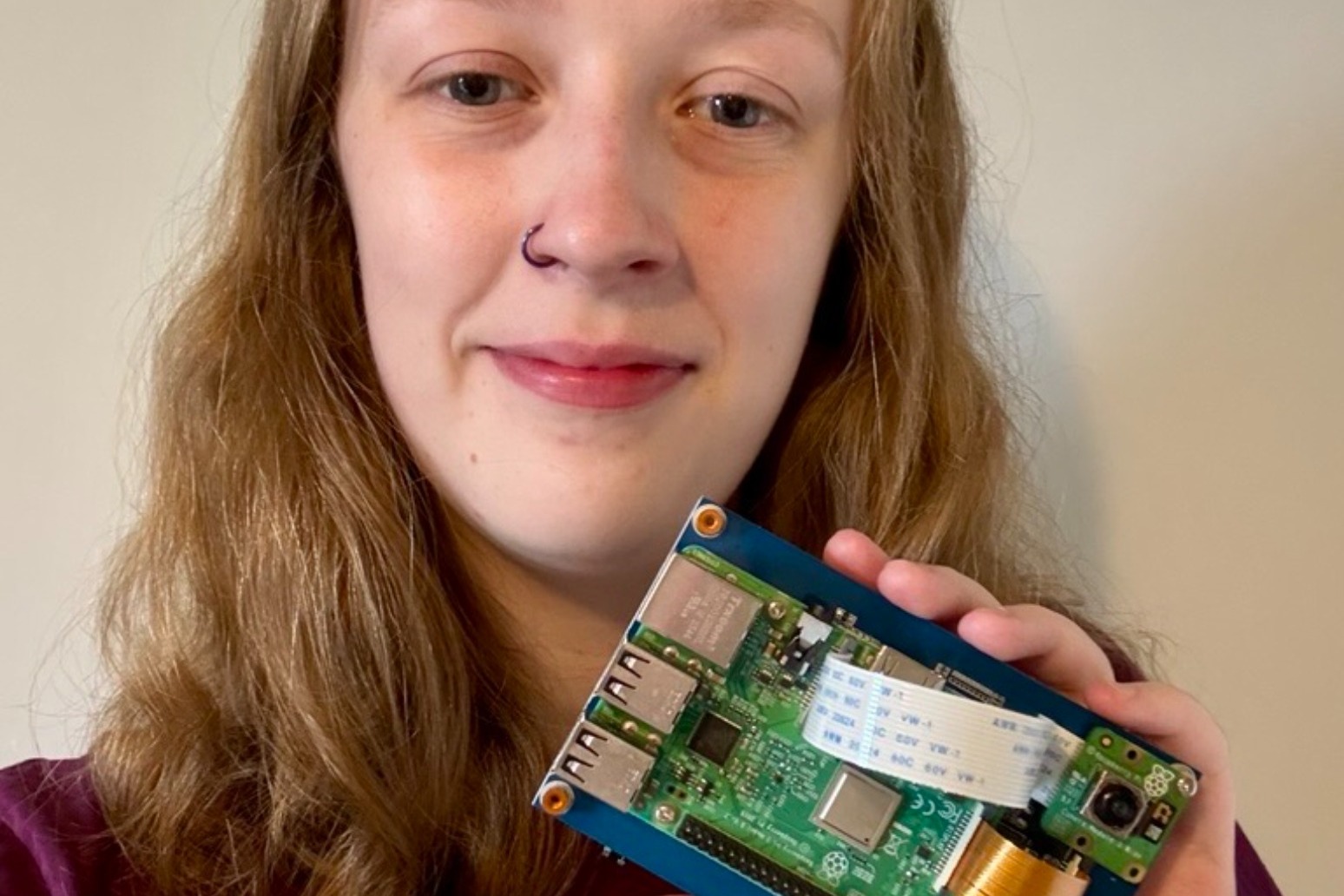AI tool designed in Scotland to 'revolutionise' skin cancer care
A Scottish researcher has broken ground with a new artificial intelligence (AI) system that could transform the way skin cancer is diagnosed.
Tess Watt, a PhD student at Heriot-Watt University, is leading a pioneering international project to create a portable AI-powered diagnostic system that can detect signs of skin cancer from an image, without needing internet access or input from dermatologists.
The tool aims to bring fast, potentially life-saving diagnoses to people who otherwise face long waits or limited access to dermatological care.
It is understood to be the first research project of its kind to combine AI medical diagnosis with the goal of serving remote communities.
"Healthcare from home is a really important topic at the moment, especially as GP wait times continue to grow," Watt said. "If we can empower people to monitor skin conditions from their own homes using AI, we can dramatically reduce delays in diagnosis."
The system is supported by Raspberry Pi devices – portable computers capable of storing large amounts of data – which enable it to operate offline, making it useful for patients in rural Scotland, where connectivity gaps remain a challenge.
 PhD student Tess Watt with her AI-powered tool | Heriot-Watt University
PhD student Tess Watt with her AI-powered tool | Heriot-Watt University
Using a small camera attached to the device, patients – or their carers – can take images of skin lesions. The AI system then analyses the images and compares them against a vast database of thousands of skin conditions to reach a diagnosis.
Once a diagnosis is made, results are shared with a local GP to begin a treatment plan, making it valuable for those who are housebound or live far from medical facilities.
Watt’s academic supervisor, Dr Christos Chrysoulas, said: “E-health devices must be engineered to operate independently of external connectivity to ensure continuity of patient service and safety.
“In the event of a network or cloud service failure, such devices must fail safely and maintain all essential clinical operations without functional degradation. While auxiliary or non-critical features may become temporarily unavailable, the core diagnostic and even therapeutic capabilities must remain fully operational, in compliance of course with safety and regulatory requirements.”
The prototype, tested in Heriot-Watt’s advanced health and care technologies lab, has already demonstrated up to 85 per cent diagnostic accuracy but the team expects to improve this further by expanding the tool’s training dataset.
Watt is currently in talks with NHS Scotland to begin the ethical approval process for a pilot trial it in a real-world clinical setting in “the next year or two”.
“By the time I finish my PhD, three years from now,” she said, “I’d love to see something well into the pipeline that’s on its way to real-world use.”
Watt is leading a team involving academics from London South Bank University, Edinburgh Napier University and the Foundation for Research and Technology – Hallas in Greece.
The team hopes to first rollout the tool across remote regions of Scotland, before expanding to global areas with limited access to dermatological care.
Chrysoulas added: “Ensuring this level of resilience in affordable, low-cost medical devices is the essence of our research, particularly for deployment in resource-limited settings and areas with limited or no connectivity, where uninterrupted patient care must still be guaranteed."
Holyrood Newsletters
Holyrood provides comprehensive coverage of Scottish politics, offering award-winning reporting and analysis: Subscribe